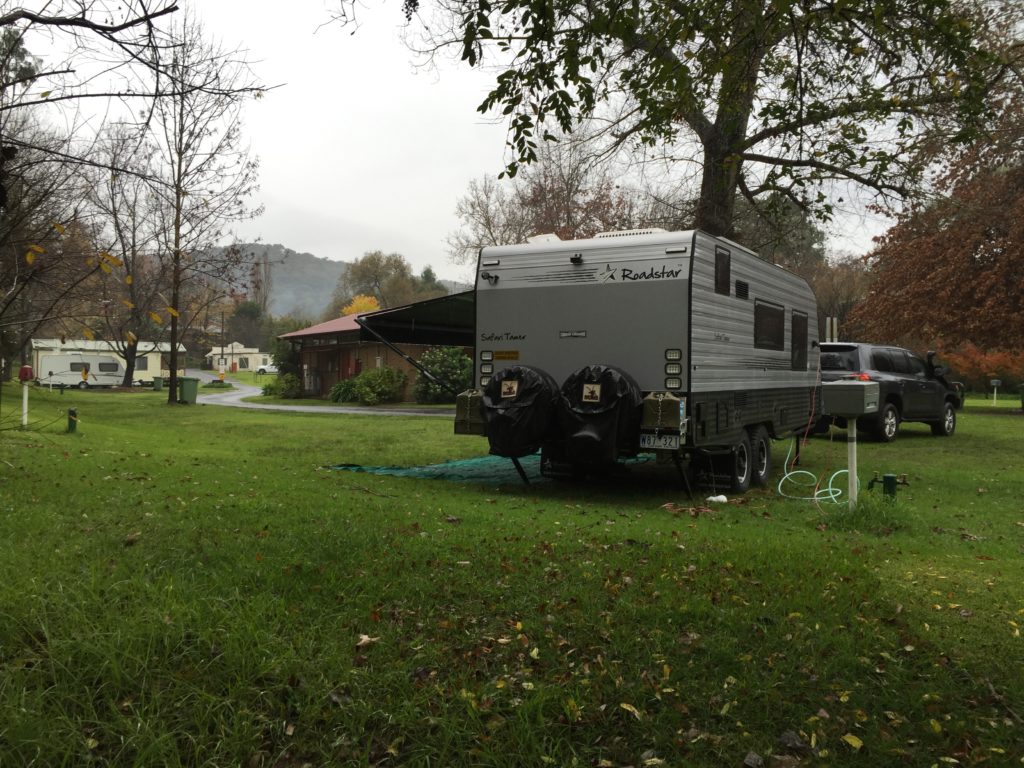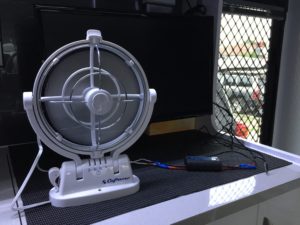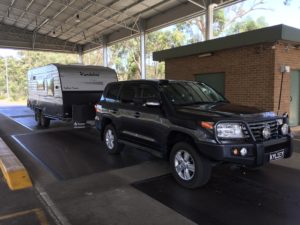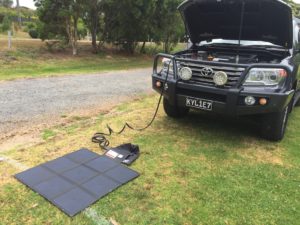Keeping warm during Winter
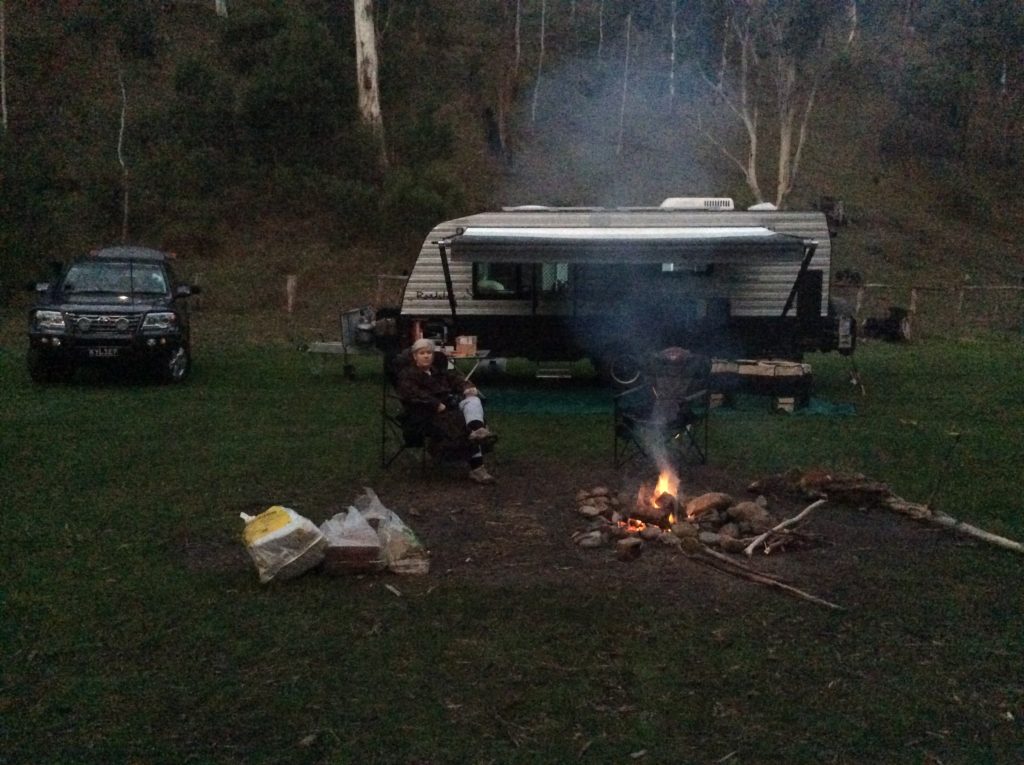
For those of us who live in the southern states of the country, Winter means cold weather and the oportunity to venture to the Northern States to chase better weather. The months of June to October are undoubtedly the best times to be travelling through central and northern Australia but what do you do if you don’t have holidays during this period? Do you pack away the camper or caravan away and spend your spare weekends at home watching movies, or do you get out there and brave the cold temperatures.
I know in our home state of Victoria, it gets very cold and wet during winter, but it’s also when much of the state is at its best with lush foliage, fields of green grass and rivers and streams flowing strongly. If you're prepared to brave the elements, you will be rewarded, but if you're like me and you're getting soft in your mature years, bravking the elements may not sound all that apealing.
So the trick is, how do you keep warm on these trips through the colder southern states during winter? What options are there for raising the temperature in the caravan or camper?
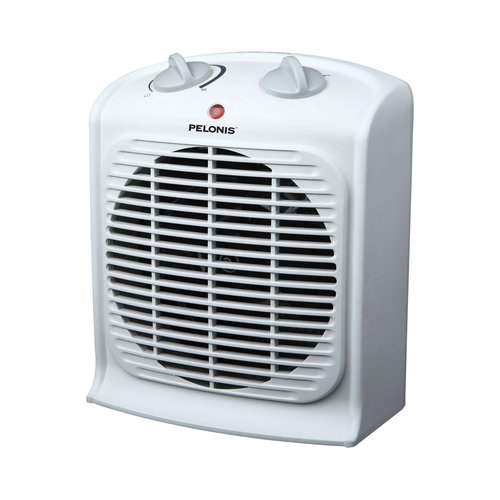
The last trip Kylie and I did through central Australia, we found ourselves in Alice Springs right in the middle of June. The days were fairly mild but, at night, the temps dropped to -5 and below. That doesn’t sound too bad but I cannot begin to tell you just how bone chilling the cold was. It ripped through us regardless of how many cloths we had on. At night, we had a good quality doona and a very warm blanket and we were still uncomfortably cold. Kylie made me go into town and not to return until I had found an electric blanket. I found the last one on the shelves that day. I never thought I would say this but I certainly can appreciate having an electric blanket in the caravan. They require 240v but the modern electric blankets are very low power consumption and can easily be run from a moderate inverter for when you’re free camping.
On the way back from that trip, after spending several weeks in the warmer northern states, we headed back through South Australia and stopped at a town called Peterborough. This is a lovely little spot with a very good caravan park. Issue is, this park is at the edge of a valley and the winds coming up the valley into the park itself were absolutely frigid. Even the heavy canvass of the camper offered little protection from the wind. We were warm in bed thanks to the electric blanket but returning from the shower block to the tent was not very pleasant at all. One other resident took pity on us and offered us the use of a spare electric fan heater. Well….what a difference it made. It could heat up the tent section of the camper in no time at all. We now carry one in our caravan and it is fantastic. It does rely on 240v mains supply and the high current draw means only a very high capacity inverter will run it, but it’s very light and they are so cheap, I cannot see why you wouldn’t carry one with you for those cold nights at a caravan park.
Most caravans come with a roof mounted air conditioner. These things aren’t bad, and they can be run on reverse cycle, but in reality I think there are better ways to keep the caravan warm. We were camped in Tenterfield in our old van where the temperature overnight dropped to -6. It was pretty bloody cold. We tried using the Ibis Aircommand 2 air-conditioned on reverse cycle and it really only got the temp inside the van to a just bearable level of about 19 degrees. The new van has the updated Aircommend 3 and this seems to be a lot better and far more efficient at heating. We've used it of several occasions in the cold weather and it does heat the van quite well but not enough to make me dispense with the space heater. If you have access to 240v and you want to be a toasty warm as possible, an electric space heater is king.
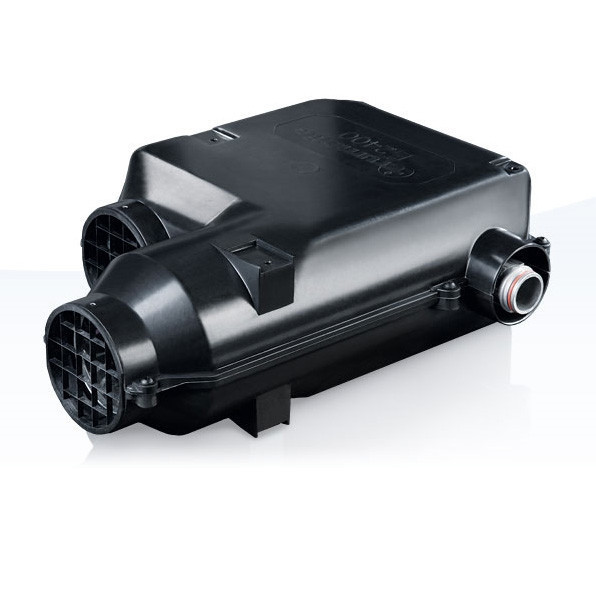
Long considered the ultimate in caravan/camper heating would be the ducted models. These are powered either by gas or diesel and the warm air is circulated by a 12v fan. Both systems are good and will heat a big caravan with ease. They are fantastic for free camping as their power consumption is minimal and their heat generation systems are very efficient. Which model you chose will depend on your particular circumstances. If you have a gas fridge, gas hot water and gas cooking, many people recommend not to go with a gas ducted heater as the risk of running out of gas could be a concern. There is also some evidence that the gas heaters don’t like competing for gas pressure when the hot water, fridge and cooktop are running all together. If your fridge is not running on gas, then this may lean you towards a diesel unit. A diesel heater requires a separate fuel tank and this adds weight to your van. Not a lot but, as we have discussed elsewhere on this site, every kilo helps. Diesel heaters also tend to be noisy especially outside where the exhaust is positioned. This, combined with the smell of burning diesel can make your neighbours less than happy. There are also some reports that the fuel pump makes a slight ticking noise that some people find anoying.
Gas heaters are virtually silent, have no discernible smell from their exhaust and, because they utilise an existing fuel source, they help conserve some weight. We have a gas heater in the Roadstar and we love it. Some owners reckon the gas heaters are not as warm as the diesel units and their rate of fuel consumption is high but we have not experienced any of these issues with ours.
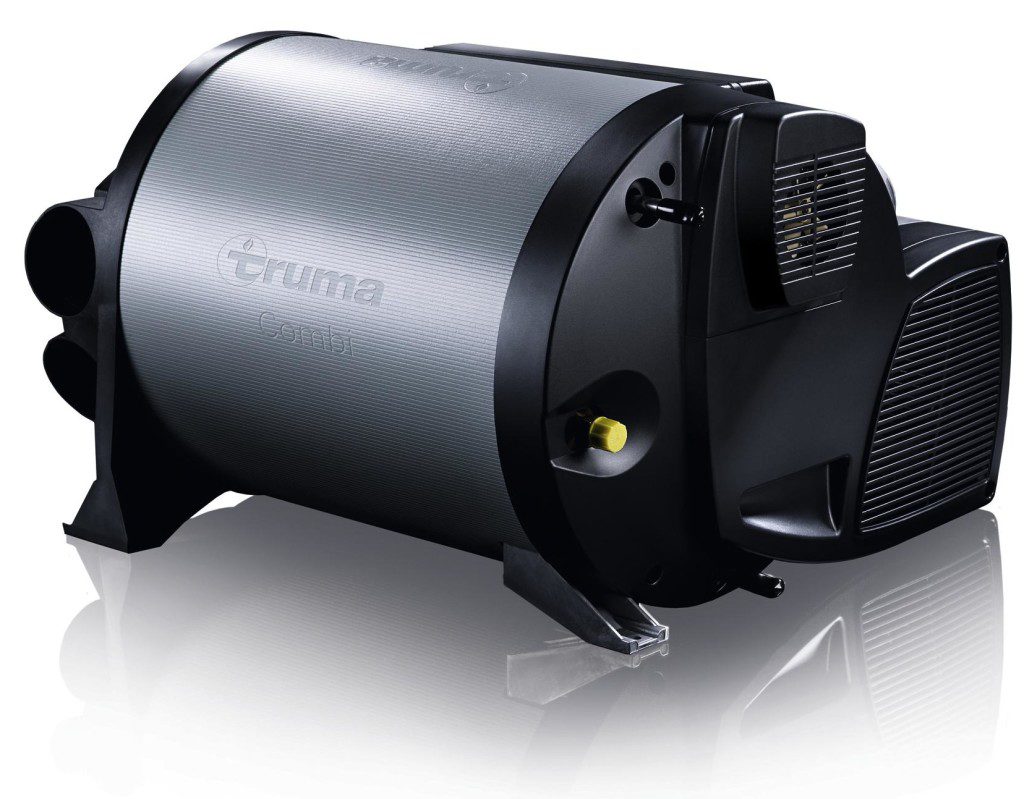
There are other system that you may want to consider. There are hot water systems that combine a heater in their design. These are quite good units and certainly save on space and weight overall but they tend to have a very small water capacity of around 11 litres. This may not be enough if you like your hot showers. I’ve also heard of some reliability issues with some of these and, in the event of a failure, you lose both your heating and hot water. Not exactly a situation I would want to be in in cold weather.
Swift now have available a heat exchanger that uses the hot water supply to provide fan forced heat. From what I have seen, it is a separate unit to the hot water system but relies on it to provide a heat source. This sounds like a good idea and time will tell if they prove to be a good system.
When you talk to others about what they do in cold weather, you will, no doubt, hear about people who will say they just put on one or two of the gas cooktops in their vans to heat it up. While this may work, running your cooktop inside the van for extended periods is dangerous and could even be fatal. The cooktops produce carbon monoxide (CO) which is extremely poisonous. Caravans are vented to prevent a build-up of CO but if you exceed what that ventilation system can expel, you could be heading for a disaster. Carbon Monoxide poisoning occurs with no warning. You fall asleep and never wake up. Similar situation can happen if you use a gas heater powered by those gas canisters. Unlike the gas ducted heaters, these have no external venting of the exhaust. We highly recommend you avoid these heaters inside a caravan or camper.
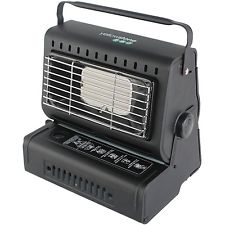
Now, all these ideas are great but what if you don’t have the space or ability to fit a heater in your van or camper? Apart from building a big fire outside, how do you keep yourself warm? Well, the trick is to use layers of clothing and bedding to stay warm rather than use thick coats or blankets. Layering your coverings traps air in between the layers providing a natural insulation. As you warm up, you remove the layers one at a time. When the temperatures drop, add more layers. It’s quite simple and very effective.
Finally, you want to ensure you stop the wind from blowing directly onto your body or your RV. Find a sheltered area to camp and wear wind-proof outer clothing. I find the best coat for keeping dry and warm in all weather conditions is the good old fashion Drys-a-bone. If you intend to do any travel and anticipate having to camp in very cold conditions, a good oilskin jacket is worth its weight in gold.
Stay warm.
Ducted Heating Systems Comparison
| Fuel source | Advantages | Disadvantages |
| Gas |
Uses existing fuel source. Quiet. Odourless exhaust. |
Needs gas plumber to sign off installation. Adds to gas usage, perhaps not ideal if the fridge uses gas as well. Slightly bigger than a diesel units. Air in the gas line a minor inconvenience. |
| Diesel |
Self install. Highly efficient. Does not add to gas usage. |
More complex install involving a fuel tank. Very slight weight disadvantage. Noise from the exhaust and fuel pump. Exhaust does have an odour. Diesel can wax up in extreme cold weather. |
